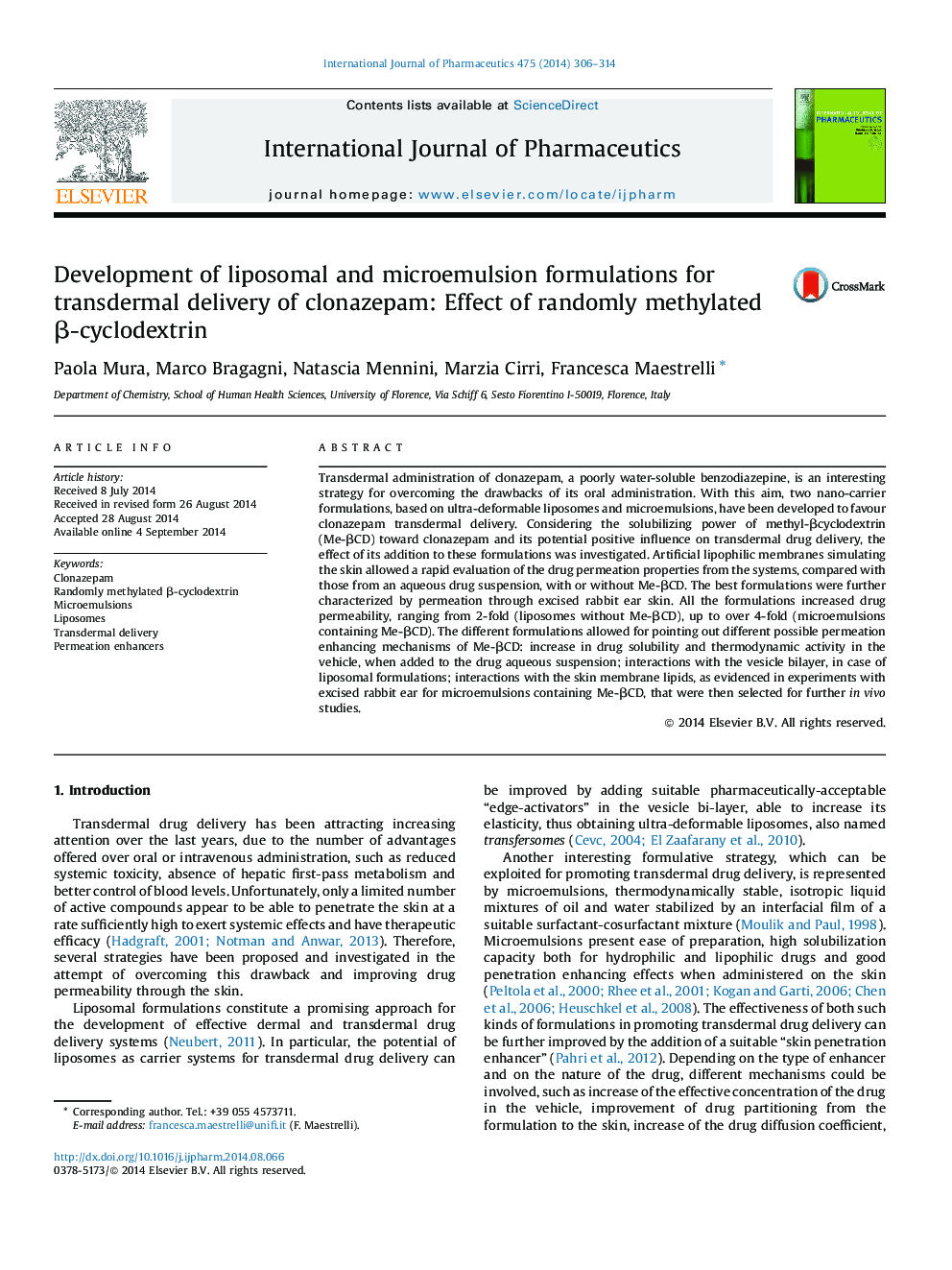| Article ID | Journal | Published Year | Pages | File Type |
|---|---|---|---|---|
| 2501682 | International Journal of Pharmaceutics | 2014 | 9 Pages |
Transdermal administration of clonazepam, a poorly water-soluble benzodiazepine, is an interesting strategy for overcoming the drawbacks of its oral administration. With this aim, two nano-carrier formulations, based on ultra-deformable liposomes and microemulsions, have been developed to favour clonazepam transdermal delivery. Considering the solubilizing power of methyl-βcyclodextrin (Me-βCD) toward clonazepam and its potential positive influence on transdermal drug delivery, the effect of its addition to these formulations was investigated. Artificial lipophilic membranes simulating the skin allowed a rapid evaluation of the drug permeation properties from the systems, compared with those from an aqueous drug suspension, with or without Me-βCD. The best formulations were further characterized by permeation through excised rabbit ear skin. All the formulations increased drug permeability, ranging from 2-fold (liposomes without Me-βCD), up to over 4-fold (microemulsions containing Me-βCD). The different formulations allowed for pointing out different possible permeation enhancing mechanisms of Me-βCD: increase in drug solubility and thermodynamic activity in the vehicle, when added to the drug aqueous suspension; interactions with the vesicle bilayer, in case of liposomal formulations; interactions with the skin membrane lipids, as evidenced in experiments with excised rabbit ear for microemulsions containing Me-βCD, that were then selected for further in vivo studies.
Graphical abstractFigure optionsDownload full-size imageDownload high-quality image (144 K)Download as PowerPoint slide
